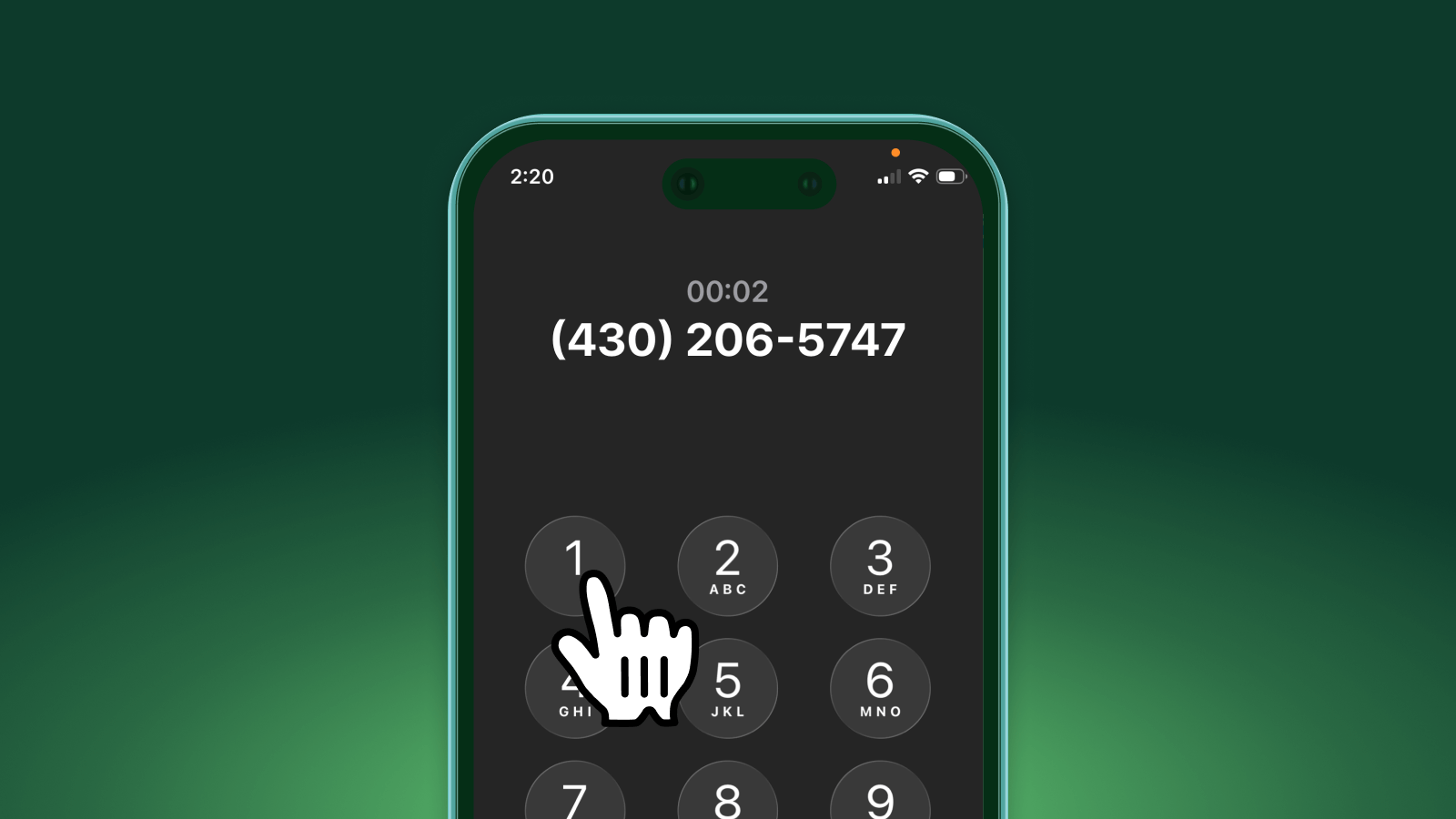A receptionist’s number one responsibility is handling incoming phone calls. That includes picking up quickly, helping the caller feel welcome, and getting them to the right person without any confusion.
It might sound simple, but this one task shapes the first impression of your business. When calls are answered smoothly, customers get what they need faster, and the whole communication flow feels easier for everyone.
Why phone handling is the receptionist’s core duty
For most small businesses, the phone is where everything starts. A new customer might be asking about pricing. A regular might be checking on an appointment. A supplier might need an update. In every case, the receptionist is the first person they talk to.
But good phone call handling is more than just picking up the call. It’s listening closely, speaking clearly, and guiding the caller toward the right next step. A warm greeting or quick transfer can completely shape someone’s impression of your business.
That’s why answering the phone—and managing all the little details that come with it—is considered the most important part of a receptionist’s job.
7 core responsibilities of a receptionist focused on call management
Here are the seven main tasks that help receptionists keep phone communication running smoothly every day.
1. Answering calls quickly and professionally
Receptionists are often the first voice someone hears from your business. Picking up with a friendly tone and a consistent greeting helps callers feel welcomed and builds trust right away.
2. Routing calls to the right person or department
A big part of the job is getting callers where they need to go. Receptionists listen to what the caller is asking for and send them to the right team, whether that’s sales, support, or someone in management.
3. Taking and delivering accurate messages
If someone isn’t available, the receptionist makes sure important details don’t get lost. They write down names, phone numbers, and the reason for the call, then pass the message along quickly.
4. Providing basic information
A lot of calls are simple questions, and often things like business hours, pricing, services, or directions. When the receptionist knows these basics, they can answer on the spot and save the team from constant interruptions.
5. Screening and prioritizing calls
Receptionists help filter out the noise. They identify what’s urgent, what can wait, and what might be spam, making sure important callers get help as soon as possible.
6. Keeping a call log or CRM notes
Tracking who called and why helps the team stay organized. Many receptionists use spreadsheets or CRM tools to make sure follow-ups aren't forgotten about.
7. Managing voicemail and overflow calls
Calls don’t stop when the office is busy or closed. Receptionists check voicemails, follow up on missed calls, and make sure everything gets handled. In busy offices, they may also use overflow tools or call forwarding so no opportunities are missed.
All together, these responsibilities help create a smooth, helpful, and professional experience for every caller.
How this role differs by workplace
While phone handling is the main duty across all industries, the daily tasks can look different depending on the environment:
- Corporate offices: managing extensions, scheduling meetings, and transferring clients
- Medical offices: answering patient questions, confirming appointments, updating records
- Hotels: handling reservations, wake-up calls, and guest requests
- Small businesses: juggling phone calls, walk-ins, and daily administrative tasks
Each setting has its own pace, but the core goal stays the same. Receptionists help keep communication clear and calls under control.
Essential skills that support these duties
A receptionist’s success on the phone usually comes from a combination of key skills:
Active listening
Active listening helps receptionists understand what a caller needs before giving an answer or transferring the call. It means paying close attention, asking short clarifying questions when needed, and picking up on details that might not be stated directly. This prevents confusion and helps callers feel understood.
When receptionists practice active listening, they can guide callers with efficiency and avoid unnecessary back-and-forth. It also helps build trust, because people appreciate when someone takes the time to truly understand their situation.
Clear communication
Clear communication is one of the most important skills for any receptionist. It involves speaking politely, using a friendly tone, and explaining things in simple terms. Even when callers are stressed or unsure of what they need, a calm and confident voice helps them feel supported.
Good communication also keeps conversations efficient. When receptionists express themselves clearly, callers get the answers they need faster and are more likely to walk away with a positive impression of the business.
Multitasking
Receptionists often handle multiple responsibilities at once. Between phone calls, walk-in visitors, messages, and administrative tasks, being able to multitask without losing focus is essential. Strong multitasking helps the front desk run smoothly, even during busy hours.
This skill also helps minimize delays and keeps callers from waiting too long. When a receptionist can manage several tasks at the same time, the business stays organized and customers get the attention they deserve.
Technical skills
Modern receptionists rely on a range of tools, including phone systems, VoIP platforms, scheduling software, and sometimes CRM tools. Knowing how to navigate these systems quickly helps them answer calls, transfer customers, and log information without interruptions.
Technical confidence also helps prevent mistakes. When a receptionist feels comfortable using the tools in front of them, they can focus on helping callers rather than troubleshooting equipment or searching for information.
The challenge for small businesses when hiring a receptionist to answer calls
Most small businesses understand how important it is to answer every call, but hiring a full-time receptionist is not always realistic. Salary, training, and benefits can stretch a budget very quickly.
Because of this, many owners try to handle calls between tasks, check voicemail later in the day, or hope customers will call back. Unfortunately, missed calls often mean missed appointments, missed sales, and missed opportunities.
That is where modern tools make a big difference.
AI answering services are a smarter alternative
AI receptionists, like the ones offered by Upfirst, help small businesses answer every call without hiring additional staff.
We can:
- Answer calls 24/7, including nights and weekends
- Greet callers with your business name and a custom message
- Route or transfer calls to the right person instantly
- Take messages and deliver them by text or email
- Schedule appointments into your calendar
- Block and filter out spam calls so they don't bug you
This gives small business owners the freedom to focus on their daily work without worrying about missed calls or lost leads.
In short, AI answering services like Upfirst give you the benefits of a receptionist without the cost of hiring one.
Key takeaway
A receptionist’s most important duty is creating connection. Every call shapes how customers see your business.
And for small teams who cannot hire a full-time receptionist, AI answering tools like Upfirst make sure every caller is greeted, supported, and never left waiting.
FAQs
What is the main role of a receptionist?
The main role of a receptionist is to manage incoming phone calls and serve as the first point of contact for customers, visitors, and anyone reaching out to the business.
What skills make a good phone receptionist?
Strong communication, multitasking, and patience are important. Great receptionists stay organized, attentive, and maintain a friendly tone.
What tools help receptionists manage calls more effectively?
Phone systems, VoIP software, and AI answering tools like Upfirst help automate message taking, call routing, and after-hours coverage.
Nick Lau is a copywriter and content lead for Upfirst.ai. A self-starter at heart, he dove into marketing in 2015 by launching an e-commerce company, selling private-labeled products on Amazon and Shopify. When he’s not crafting copy, you might spot him on a winding road trip to the coasts or through forests, in search of unexplored places.








